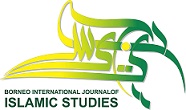The Struggle for Land in Morocco: A Case Study of Amazigh
Abstract
This paper addresses the issue of the conflict over land between the state and tribes in the Great Souss plain in Morocco. The focus of this study is on the Amazigh tribes. It explores the motives that contributed to the emergence of tribal protests, particularly their demands for land rights, following the civil reforms promised by the Arab Spring in 2011. Through a direct examination of the growing dissatisfaction among these communities, the study reveals that the political failure to democratize society, characterized by consistent confusion at the level of governmental and institutional frameworks and the law's failure to regulate spatial justice on the ground, have both played a role. This situation has prompted tribes, feeling a sense of historical oppression, to claim their rights to the land that the state has increasingly opened up for investment without considering the traditional rights of these indigenous groups.
References
Abdel Hakim Al-Zawi, "Moulay Suleiman: The Final Moments of Caution", Al-Ittihad Al-Ishtiraki Newspaper, published on 06/01/2023.
Abdul Rahman Munif, Between Culture and Politics, Arab Studies and Publishing Foundation, Fourth Edition 2007.
Ahmed Sakhy, The New Legal Framework for Communal Land, Vol. 1, Okad Printing House, 2020.
Allal El Fassi, Independence Movements in the Arab West, Tetouan, Moroccan Printing House, no date.
Anselm Strauss and Juliet Corbin, Basics of Qualitative Research: Techniques and Procedures for Developing Grounded Theory, translated by Abdullah bin Hussein Al-Khalifa, Center for Administrative Research and Studies, 1999.
Asef Bayat, Life as Politics: How Ordinary People Change the Middle East, National Center for Translation, First Edition 2014.
Banane, Mohamed Cheikh, and Souad Ahmad Ezzerouali. "The Stereotypical Phenomenon in the Imaging of the Arab Marxists." The International and Political Journal 58 (2024).
David Engels and John Houston, Introduction to the Sociology of Culture, translated by Lama Nasir, reviewed by Fayez Al-Sayagh, Beirut, Arab Center for Research and Policy Studies, First Edition March 2013.
Denis Couch, The Concept of Culture in Social Sciences, translated by Monir Al-Saeedani, reviewed by Taher Labib, Beirut, Arab Unity Studies Center, First Edition 2007.
Ezzerouali, Souad Ahmed, and Ahmed Mohammed Siddiq. "The right of the tenant to compensate for emptying in shops in accordance with the provisions of the Moroccan Commercial Rental Law No. 49.16." AL-ANBAR University Journal of Law and Political Sciences 14.1 part: 2 (2024).
Ezzerouali, Souad, Mohamed Cheikh Banane, and Brahim Hamdaoui. 2024. “Sharia in Moroccan Law: a Perpetual Source and Guiding Reference”. Legality : Jurnal Ilmiah Hukum 33 (1):44-68. https://doi.org/10.22219/ljih.v33i1.36744.
Grawitz, Madeleine: Méthodes des sciences sociales, Paris prudence générale, Dalloz, 4th edition, 1979.
Ibrahim Abrach, Social Research: Issues, Methods, Procedures, Marrakech, Publications of the Faculty of Legal, Economic, and Social Sciences, Book Series, No. 10- 1994.
Ibrahim Abrach, The Scientific Method and Its Applications in Social Sciences, Amman, Dar Al-Shorouk, First Arabic Edition 2009.
James Scott, Weapons of the Weak: Everyday Forms of Peasant Resistance, translated by Ibrahim Al-Aris and Mikhail Khoury, Lebanon, Dar Al-Saqi, no edition.
Mohamed Outtaher, "The Human Rights Movement in Morocco: The Dialectic of Influence Before and After the Arab Spring", Arab Reform Initiative, published on 16/07/2018.
Najib Bouderbala, The Law Between the Tribe, the Nation, and the State: The Dialectic of Legislation, Custom, Sharia, and Law, translated by Mohamed Zarnin, Afrique Orient, 2015.
Oubloch Mohammed, Procedural Democracy and Protest Movements in Morocco, Political Trends Journal, Issue 5 (August 2018), Arab Democratic Center, Berlin, Germany.
Salem Oukari, The Making of Belonging: A Study of Land Ownership in Saharan Society (Ait Oussa 1600-1956), Beirut, Arab Center for Research and Policy Studies, First Edition 2023.
Sidi Mohamed Ould Tatah, "Has the Hassaniya Language Retained Its Purity for Centuries?", Sky News Arabia, published on 12/11/2020.
Tayeb Boutbkalt, Amazigh Identity and French Colonialism (16): The Ẓahīr of September 11, 1914, Hespress, published on 01/06/2018.
The Ẓahīr on the Right to Establish Associations, Ministry of Justice, Legislative Directorate, Official Gazette No. 5712, dated February 26, 2009, updated edition dated October 24, 2011.
Trainer’s Guide to Active Citizenship and Diversity, supervised by Nayla Tabbara, Adyan Foundation, 2019.
Al-Hassari, Sayyid Mustafa ibn Sayyid Muhammad. Munafih al-Daqaiq Sharh Majami' al-Haqaiq. Printed in Damascus, n.d.
Al-Banna, Jamal. Qadiyat al-Fiqh al-Jadid (The Issue of New Jurisprudence). Kotobarabia, 2007. Accessed October 22, 2024. https://urls.fr/QURlEM.
Al-Suyuti, Jalal al-Din Abd al-Rahman. Al-Ashbah wa al-Naza'ir fi Qawa'id wa Furu' Fiqh al-Shafi'i. 1st ed. Beirut: Dar al-Kutub al-‘Ilmiyyah, 1403 AH / 1983 CE.
Harb, Ali. The Revolutions of Soft Power in the Arab World: From System to Network. 2nd ed. Beirut: Arab Scientific Publishers, 2012.
Copyright (c) 2024 Mohamed Cheikh Banane, Souad Ezzerouali, Ahmed Mohamed Elzein

This work is licensed under a Creative Commons Attribution 4.0 International License.


.png)






